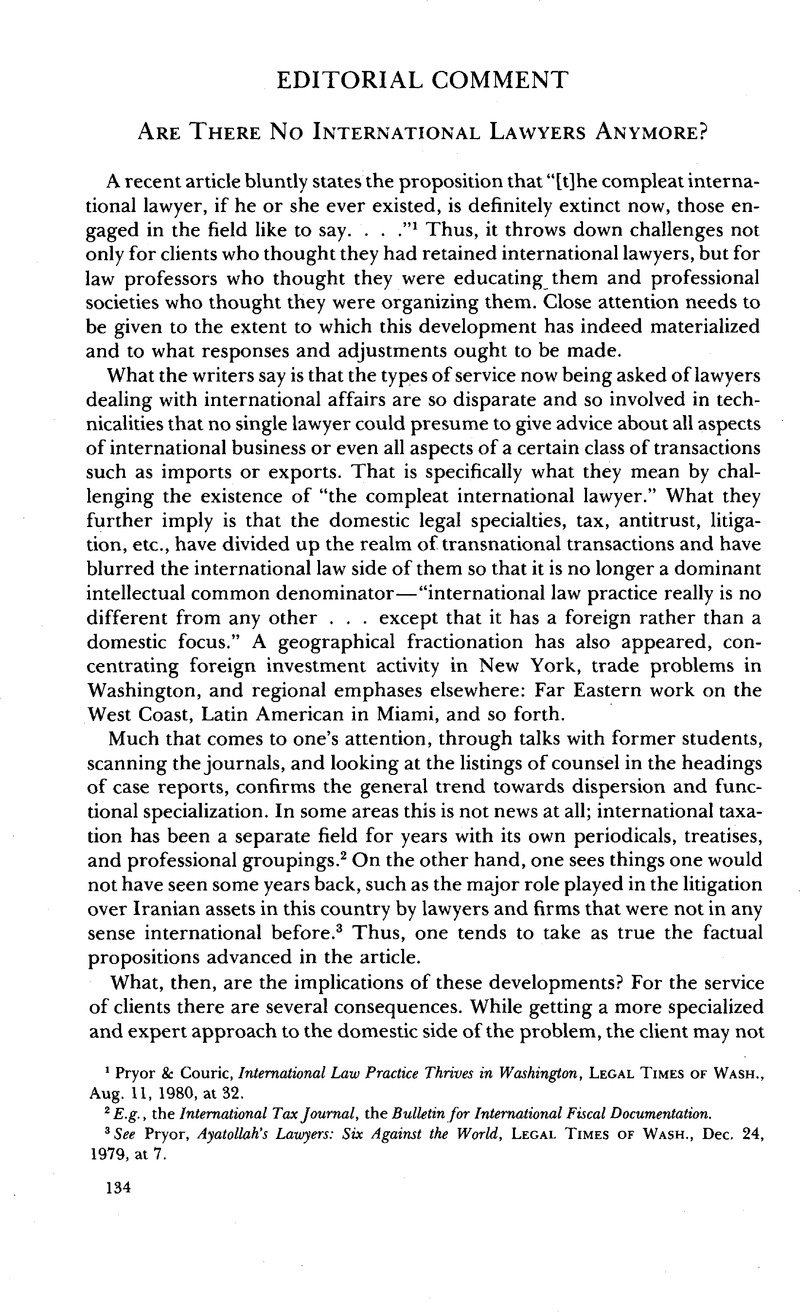Published online by Cambridge University Press: 27 February 2017

1 Pryor & Couric, International Law Practice Thrives in Washington,Legal Times Of Wash., Aug. 11, 1980, at 32.
2 E.g.,the International Tax Journal,the Bulletin for International Fiscal Documentation.
3 SeePryor, Ayatollah's Lawyers: Six Against the World,Legal times of wash., Dec. 24, 1979, at 7.
4 SeePainton & Co. v. Bourns, Inc., 442 F.2d 216, 226 (2d Cir. 1971); Solomon, , Nothing Is Simple in Iranian Asset Freeze, Legal Times Of Wash., Dec. 17, 1979, at 12, 15.Google Scholar Of course, the outside observer can never know just what went on between client and counsel in making these choices or what the determining factors actually were.
5 See Schachter, , The Invisible College of International Lawyers, 72 Nw. L. REV. 217 (1977)Google Scholar; see alsoB. Weston, R. Falk, & A. D'amato, International Law And World Order 241-56 (1980). Professor Schachter points to the willingness and ability of international lawyers “to address themselves to questions raised in all fields” and concludes that fractionation of the study of international law “is not likely in the near future, nor is it desirable” (p. 221). The position taken in this Editorial Comment is not that fractionation is desirable but that it is happening. At least, it is happening in the community of private international lawyers. Professor Schachter is on safer ground as to academic and government lawyers, but even there one sees signs of splintering such as the appearance of casebooks for specialized courses in international organizations, world trade, economic law, etc.
6 For a Canadian view of the academic international law scene consistent with this paragraph, see Macdonald, Morris, & Johnston, The New Lawyer in a Transnational World,25 U. Toronto L.J. 343 (1975).
7 For a brief description of the problems of such competing channels, see R. Vernon, Manager In The International Economy 226-33 (2d ed. 1972).